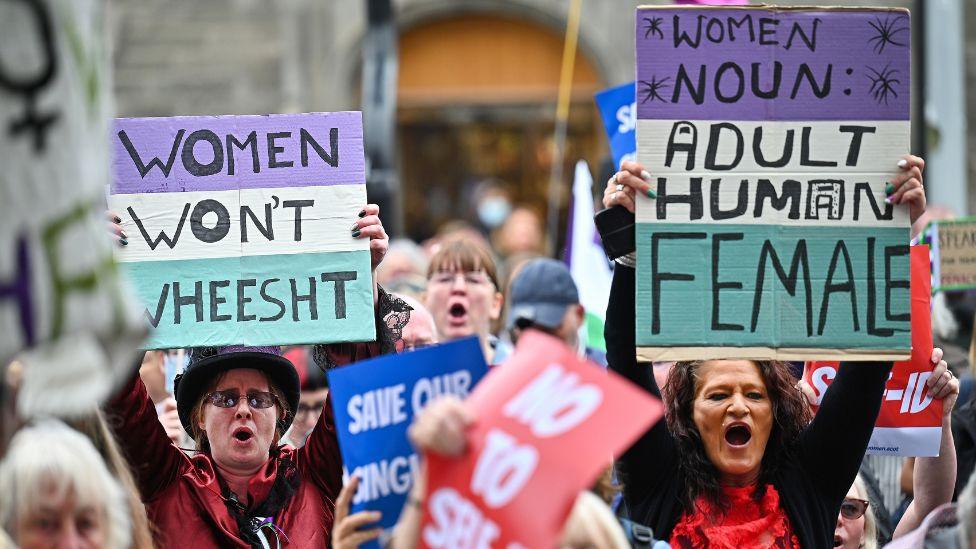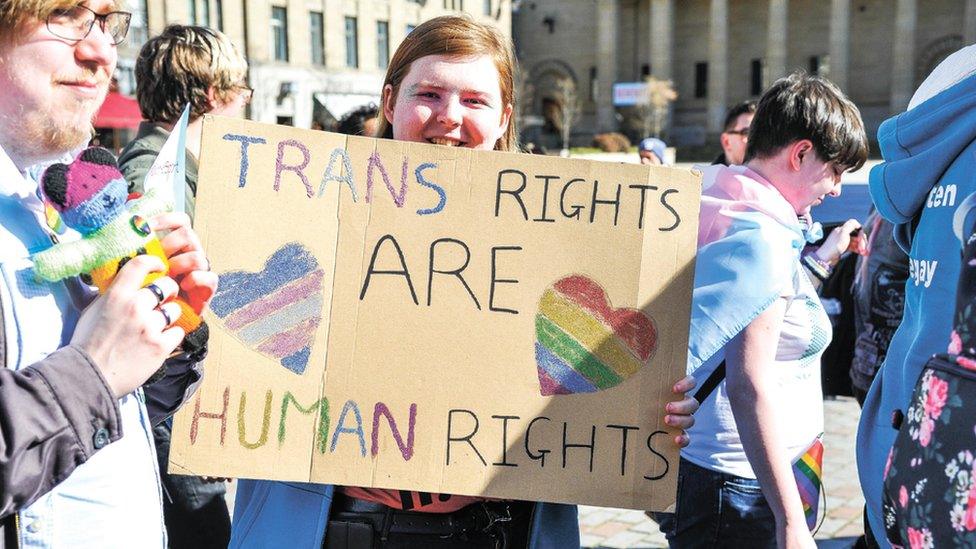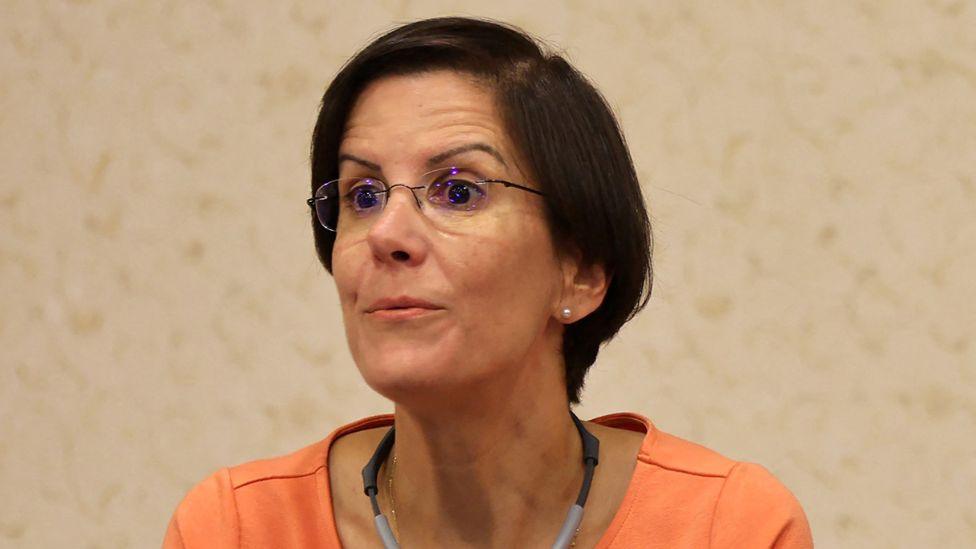UN expert warns men could 'abuse' Scottish gender reforms
- Published

Campaigners have raised concerns about the gender recognition reforms
The Scottish government's proposals to reform gender recognition laws could allow violent males to "abuse" the system, a UN expert claims.
The organisation's special rapporteur on violence against women and girls said the legislation could increase potential safety risks.
Scottish ministers argue the current process to change a person's legal gender is too difficult and invasive.
They say there is "no evidence" women and girls will be harmed by the bill.
A Scottish government spokesperson said many of the issues raised by the UN rapporteur have been addressed by parliament.
Under the terms of the proposed new laws, people will no longer need a diagnosis of gender dysphoria to apply for a gender recognition certificate.
The Gender Recognition Reform (Scotland) Bill, external will also reduce the time required for an applicant to live in their acquired gender.
In a letter to the UK government, external, UN special rapporteur Reem Alsalem shared fears that the legislation "would potentially open the door for violent males who identify as men to abuse the process of acquiring a gender certificate and the rights that are associated with it".
She added: "This presents potential risks to the safety of women in all their diversity (including women born female, transwomen, and gender non-conforming women)."

The rapporteur's letter also argued that the proposals "do not sufficiently take into consideration the specific needs of women and girls in all their diversity, particularly those at risk of male violence and those who have experienced male violence, as it does not provide for any safeguarding measures to ensure that the procedure is not, as far as can be reasonably assured, abused by sexual predators and other perpetrators of violence".
She added: "It is vital that service providers in Scotland continue to be able to provide both single-sex and gender-based services, and funding must be ring-fenced for a certain proportion to be single sex, balancing the needs of the different demographics without placing them in conflict."
During stage two proceedings of the bill on Tuesday, MSPs approved an amendment which means the legislation has no impact on the Equality Act.
The act allows for exemptions to rules allowing trans people to access single-sex spaces such as domestic abuse refuges or changing rooms.
Throughout the process, the Scottish government has said the bill would not change the current exemptions for single-sex spaces, but the amendment places such an assertion on the face of the bill.
The rapporteur called for clarity on the bill, arguing that the Scottish government has failed to set out the impact of self-identification "for the exceptions under the Equality Act that are provided based on sex".
She appealed for the Scottish government to set aside "sufficient time" to consider the consequences of the reforms and ensure it is compatible with the Equality Act.

UN special rapporteur Reem Alsalem has shared concerns about the gender recognition reforms
The letter states: "In finalising this bill and for future legislation, the Scottish and the UK governments must also make sure that current and future amendments to laws that have an impact on women and children are in conformity with the UK's international human rights obligations, particularly in relation to the prevention of violence and the provision of services for victims of such violence."
Former SNP minister Ash Regan, who quit last month over its gender recognition reforms, has echoed such concerns.
In a column for The Times, external on Wednesday, she wrote: "Women's single-sex spaces for privacy, safety or therapeutic purposes are enshrined in the Equality Act 2010. These important protections will be impossible to uphold when anyone can decide they are a woman and have a GRC to prove their legal status.
"If this bill is to be enacted, there needs to be clear guidance for institutions and business to ensure they operate within the law. There are so many unanswered questions."
'Overwhelming support'
The Scottish government said it would respond to Ms Alsalem in detail on the issues, many of which had been addressed during stage one and two of the bill.
"We have always been clear that the bill does not conflict with our continued strong commitment to uphold the rights and protections that women and girls currently have under the 2010 Equality Act and we have accepted an amendment to put that position beyond doubt," a spokesperson said.
"There is overwhelming support for the principles of the bill - which aligns with the stated position of the UN Human Rights Office that being trans is not an illness and trans people should be recognised legally 'through a simple administrative process based on self-identification'.
"Over two-thirds of the parliament and members of all five parties voted in favour at stage one. We have also noted the evidence given to the Equalities Committee in support of the Bill by the UN Independent Expert on Protection from Violence and Discrimination based on Sexual Orientation and Gender Identity."
The UK government said it was "actively monitoring the progress of the bill and considering its potential impacts on the rights of residents across the union."